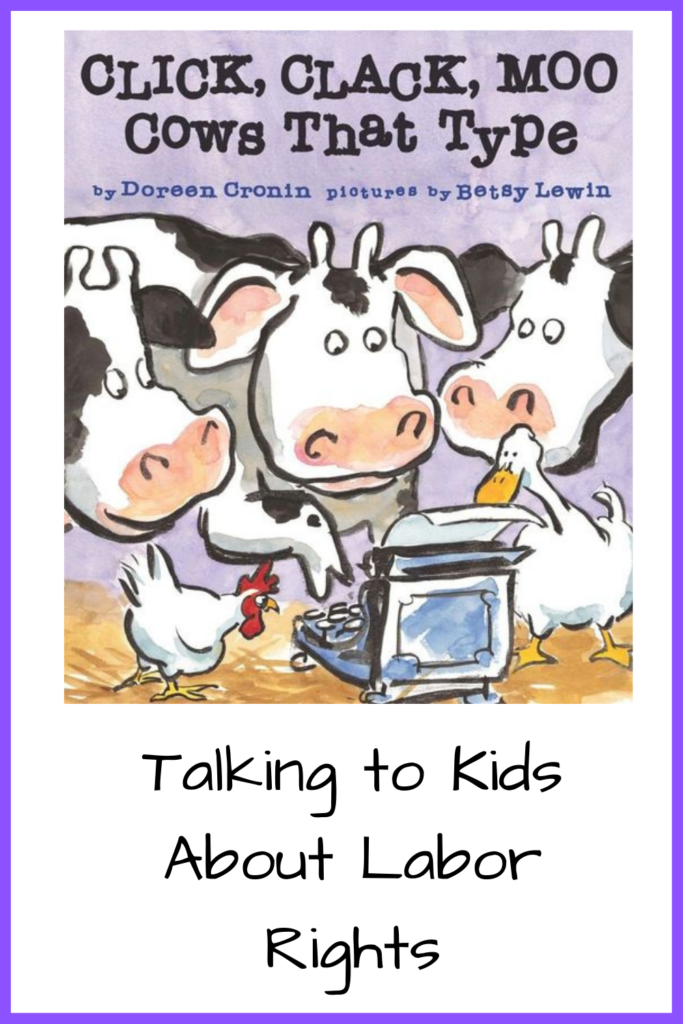
“And make sure not to get Kelloggs,” I commented to my husband as we were putting together the grocery list.
“Why not Kellogg’s?” my older son said, looking up from his book.
“Well, the people who work for Kelloggs are on strike. That means they aren’t working because they want better work conditions, like better pay. Remember in Click Clack Moo: Cows that Type?” I explained, referencing a hilarious children’s book. In it, the cows and chickens go on strike and refuse to give the farmer eggs and milk until he gives them electric blankets. They use an old typewriter to express their concerns. We’ve read it a bunch of times.
“The ducks wanted a diving board!” my younger son piped in.
“Yep, they did! But when people go on strike it helps them if we don’t buy the products made by the company. That sends the message to the company that we support the workers,” I followed up. “So no Raisin Bran. Anything else?”
My husband went on Twitter to look at a graphic of companies Kellogg’s owns. “Not really anything else we buy.”
This sort of conversation is pretty common in our household. It’s partly because my kids want to know everything about everything, especially if it involves the word “Why?” Sometimes I can’t keep track of the number of questions they ask me a day.
But it’s also partly because my husband and I seize on these opportunities to have these conversations.
Talks about challenging topics aren’t one and done. They’re a series of small conversations that illustrate the same ideas in different ways and contexts. Ideas like racial justice, climate change, women’s rights, economic issues, can all come up regularly if you keep an eye out for them.
Talking about these subjects isn’t just for the sake of awareness. It’s also to help children understand the context for our own actions. Why are we buying things from the farmers’ market? Why are we taking the bus or walking instead of driving? Why aren’t we buying that plastic toy for them? If we don’t have these conversations, kids will just think that actions we take to further social justice or environmental sustainability are just “a weird thing their family does” rather than rooted in our values.
These talks can also blossom into other types of actions too. I know when my behavior and values do diverge that my kids aren’t afraid to point it out! (Generally when it’s in their favor, but it’s a start.) Or sometimes they have suggestions on what we should do that matches up to those values.
So next time you make a purposeful decision to take action rooted in environmental sustainability or social justice, explain why to your kids. They may understand a lot better than you think they will.